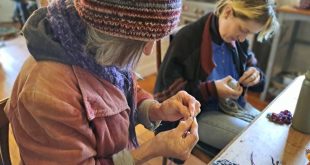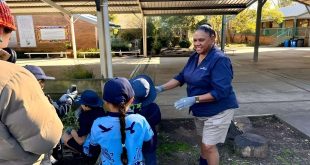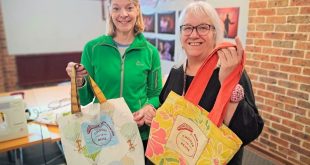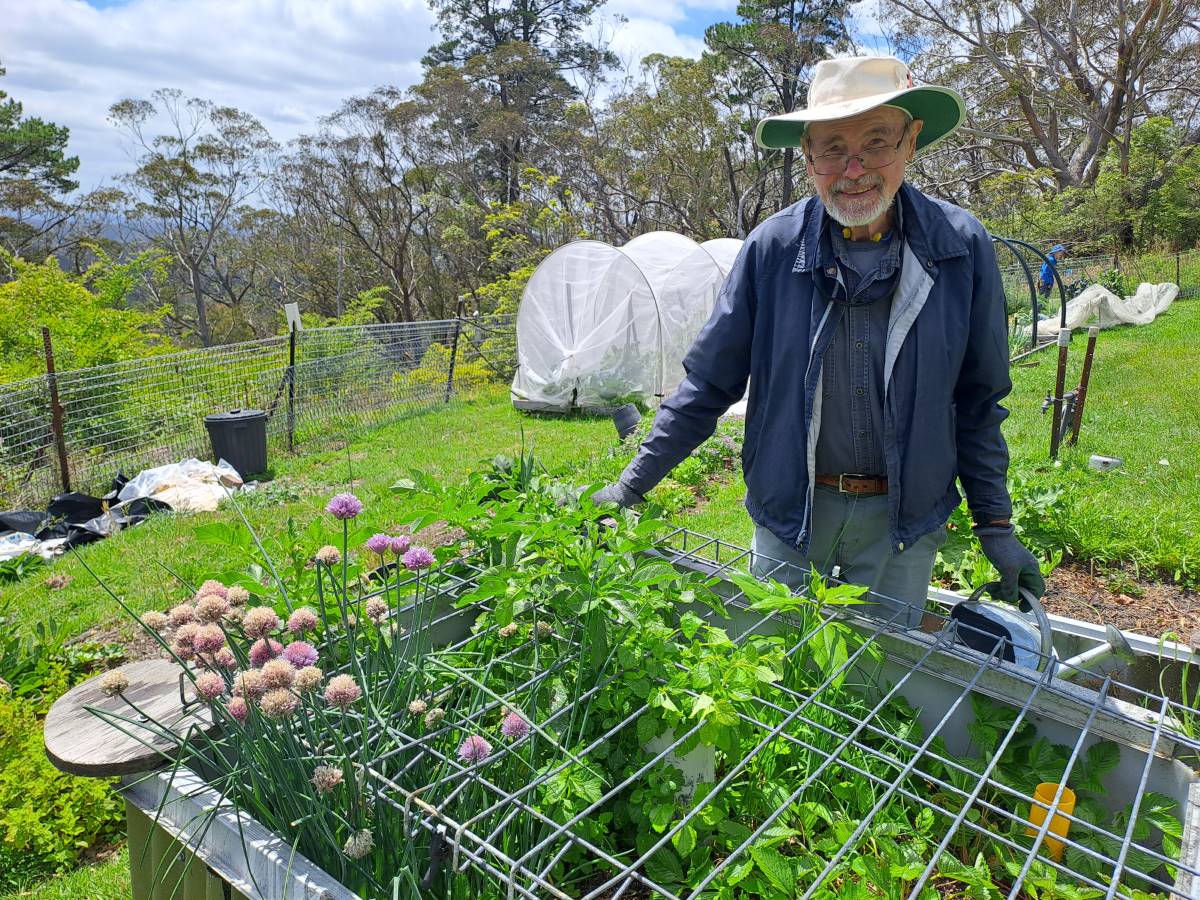
Ray Kennedy at Mid Mountains Community Gardens
Story and photos by Belle Butler
Growing fruit and vegetables is immensely gratifying, on top of the healthy food it produces and the money it can save compared to supermarket prices. But doing it consistently well is hard: and that’s where Community Gardens are an invaluable resource. Visit Mid Mountains Community Garden with Belle Butler to dig deeper.
Key Points:
- Community gardening provides an opportunity to grow food without the pressure of maintaining a veggie patch all on your own.
- Community gardening utilises the skills, knowledge and hard work of many, allowing for better growing systems, more success and faster maintenance.
- Community gardens build resilience at a local level by strengthening relationships, increasing food security, and providing opportunities to upskill and knowledge swap.
I have a complex relationship with my veggie patches. When we are on good terms, I lavish them with my attention and love, and they flourish and thrive and offer their bountiful fruit in return. We meet each other’s needs and show our gratitude and respect in how we provide for each other.
But then I withdraw. Sometimes for a few days, other times inflicting long bouts of neglect while I busy myself elsewhere. There are many distractions that come between us, and my veggie patches are not particularly accepting of my multiple life-affairs. They demand consistent attention. And if they don’t get it, they show their displeasure. They wilt. They shrivel. They refuse to provide. And then the weeds come in and declare the relationship over.
My show of intermittent love is the result of a particularly busy time of life. At least, that’s the excuse I’m going with, and one that I’ve commonly heard from others attempting similar relationships in their own backyards. The good news is, just because you can’t keep up your end of the deal in a monogamous relationship with your veggie patch at home, it doesn’t have to be the end! Polyamory in the veggie patch world does wonders for all involved.
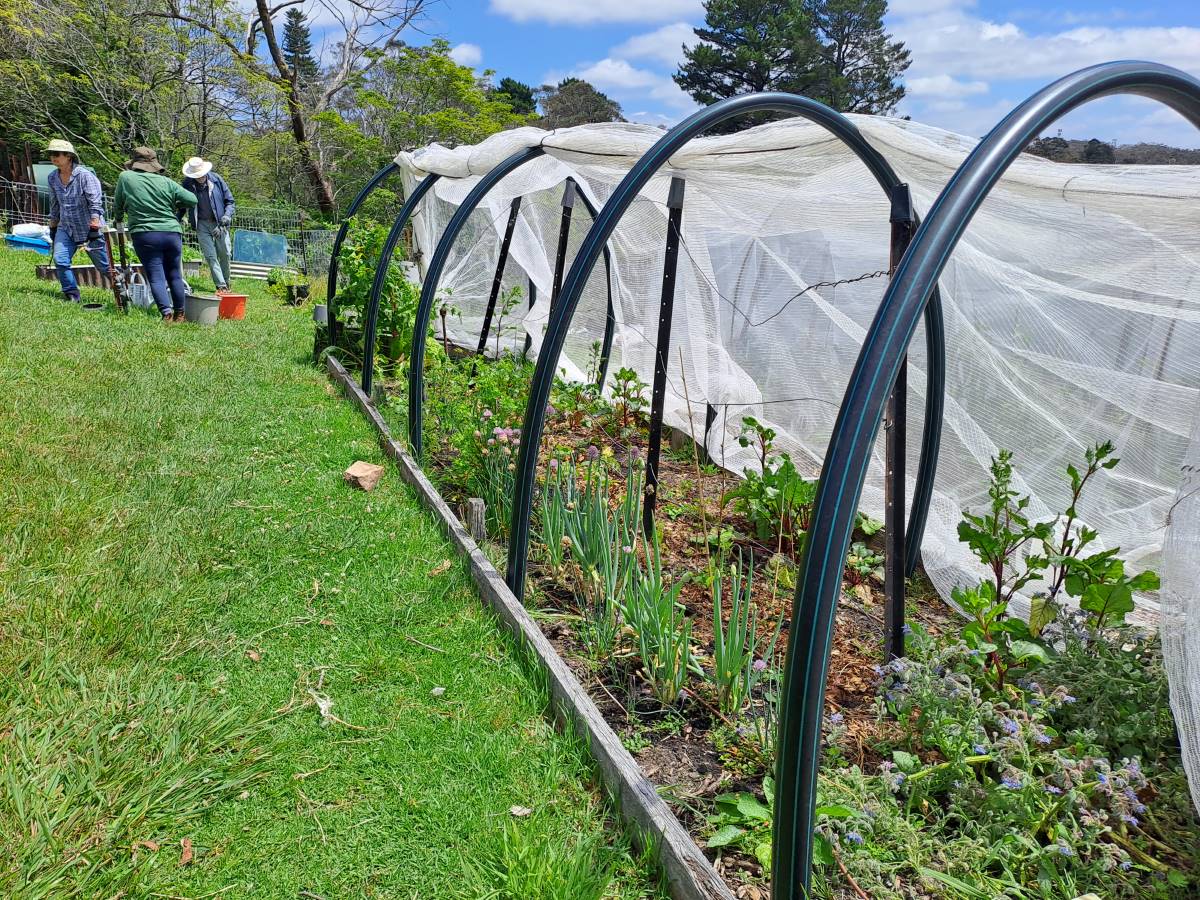
Volunteers gather at Mid Mountains Community Garden.
In all seriousness, community gardens, like the Mid Mountains Community Garden on Queens Road in Lawson, offer an excellent opportunity to upskill, connect with others and grow food, without the pressure of maintaining a patch all on your own.
Further, community gardening builds resilience at a local level by strengthening relationships, increasing food security, providing an opportunity to share tips and knowledge, problem solve, and work towards building self-sustaining communities.
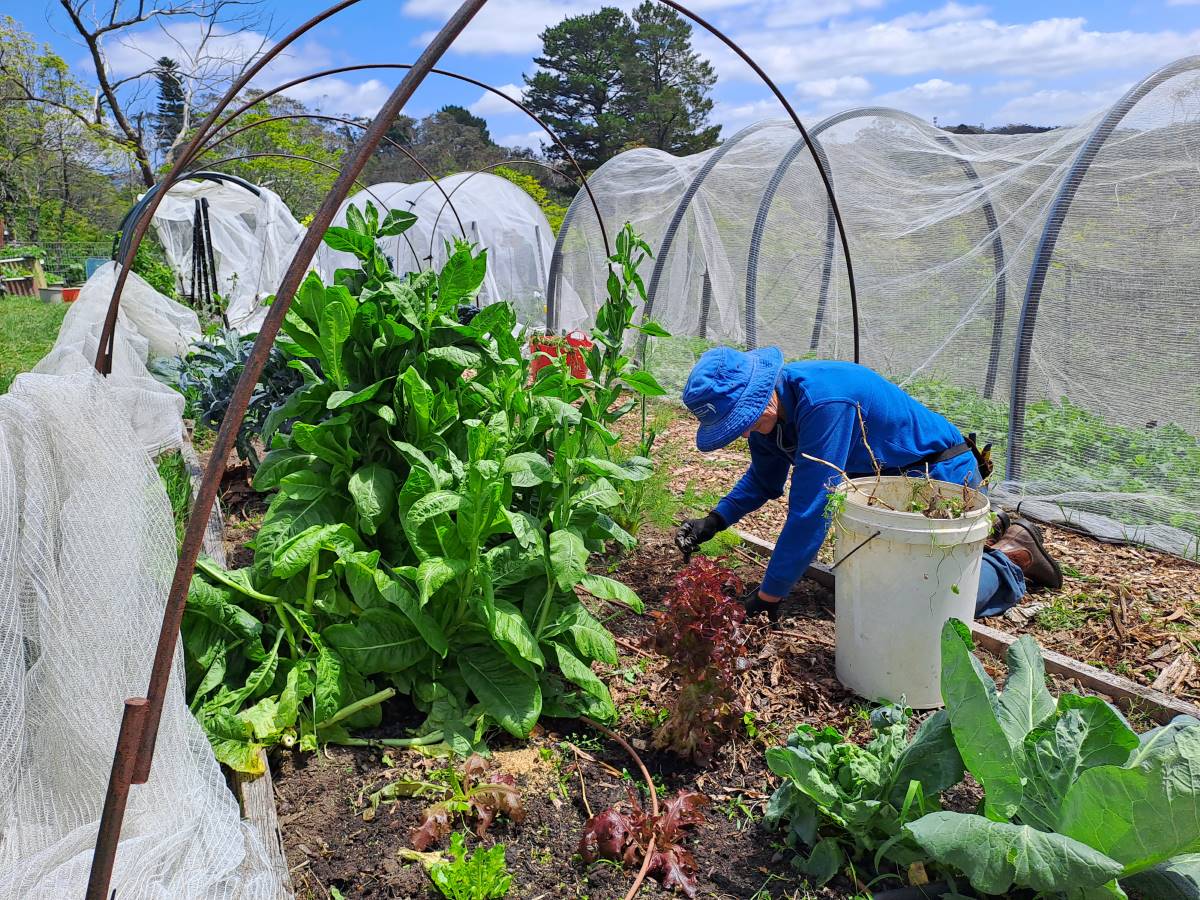
Janet pulling weeds in one of the veggie patches at Mid Mountains Community Garden
When I visited Mid Mountains Community Garden, a handful of volunteers were busily tending to multiple beds of fine produce. It was clear that while the gardens benefitted from their concerted effort, the people participating also benefitted.
Janet, one of the longest-attending members, shared with me some of things she loves about community gardening: “Learning more about gardening including water saving, seasonal rotation of plants and weeds versus veggies, enjoying the company of like-minded people, passing on knowledge to others, and sharing ideas.”
Kathy Husselbee from Wentworth Falls, who makes the trip down to Lawson to take advantage of the slightly warmer climate below Boddington Hill, added to that list: “Putting your hands in soil, socialising, having the chance to take home produce, and feeling like you’re on the good side. If you feel like you’re meeting people and doing something positive, it’s a good thing.”
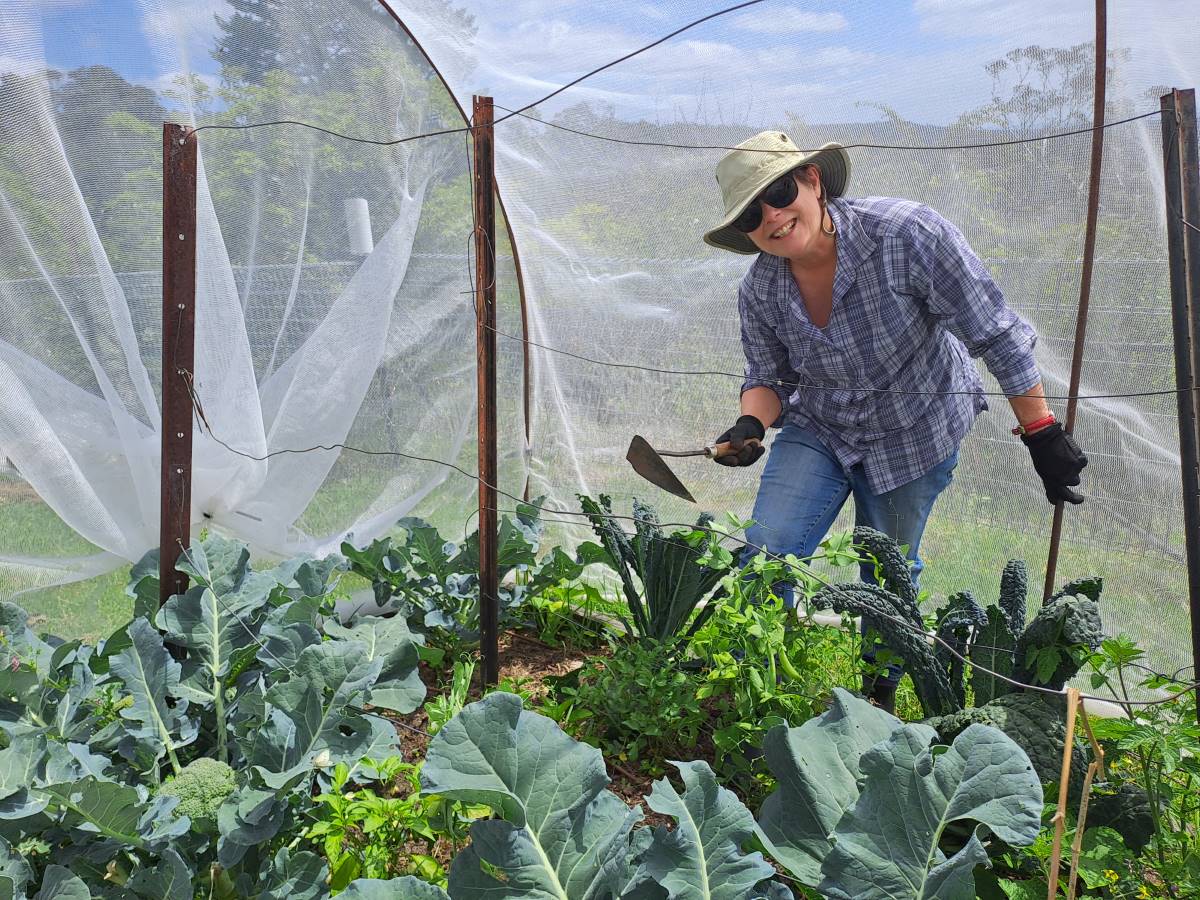
Kathy Husselbee comes to the Community Garden from Wentworth Falls
Another volunteer, Margaret Bell, joined the group during Covid, when a neighbour thought she needed cheering up. I asked her if participating in the Community Garden achieved that goal and she didn’t hesitate: “Oh yes, it cheered me up!” She added that as a vegetable lover, she greatly appreciates the opportunity to learn how to grow vegetables, which she wouldn’t otherwise be able to do due to a shady garden at home.
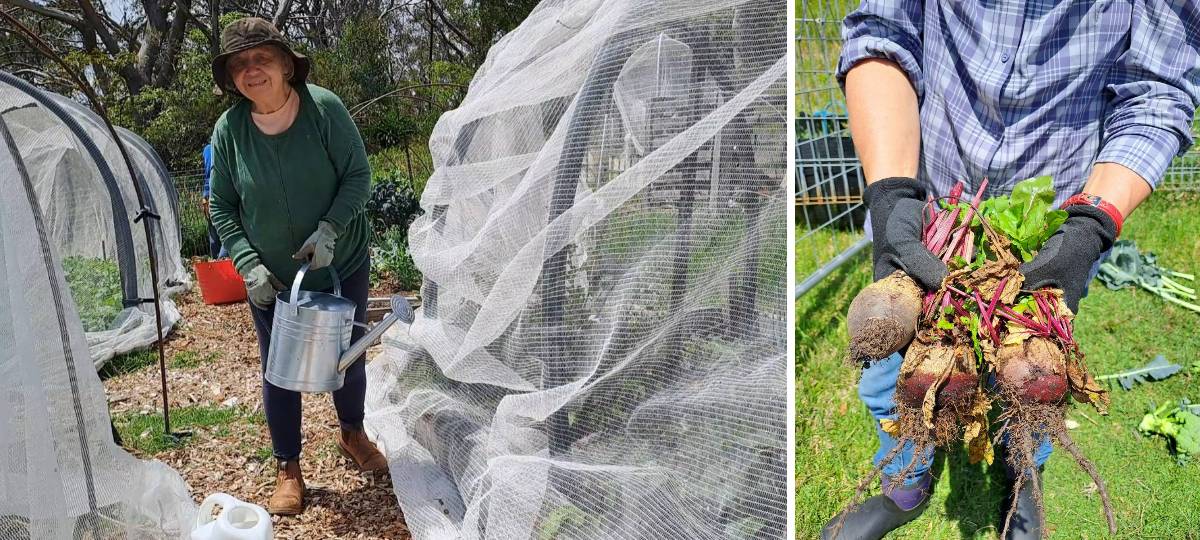
Left: Margaret Bell found that community gardening cheered her up during Covid. She’s been participating ever since. Right: Taking home tasty produce is one of the perks of participating in community gardening.
Knowledge sharing is a particular benefit of attending the gardening days, which take place every Saturday from 9am to 12pm. Volunteers come from a range of backgrounds and boast varying levels of expertise, with founding members like Ray Kennedy, a gardener by trade, and Janet, a local Bushcare volunteer of many years, bringing years of local experience to the group.
As a group, they work together to solve problems and improve systems. “One challenge we face is water and a warming climate,” said Kathy, explaining that one of the ways they are dealing with this problem is by creating wicking beds. With funding they received from participating in the Edible Gardens Trail, they created two wicking beds with different systems: one with irrigation pipe at the base, and one with washed river sand.
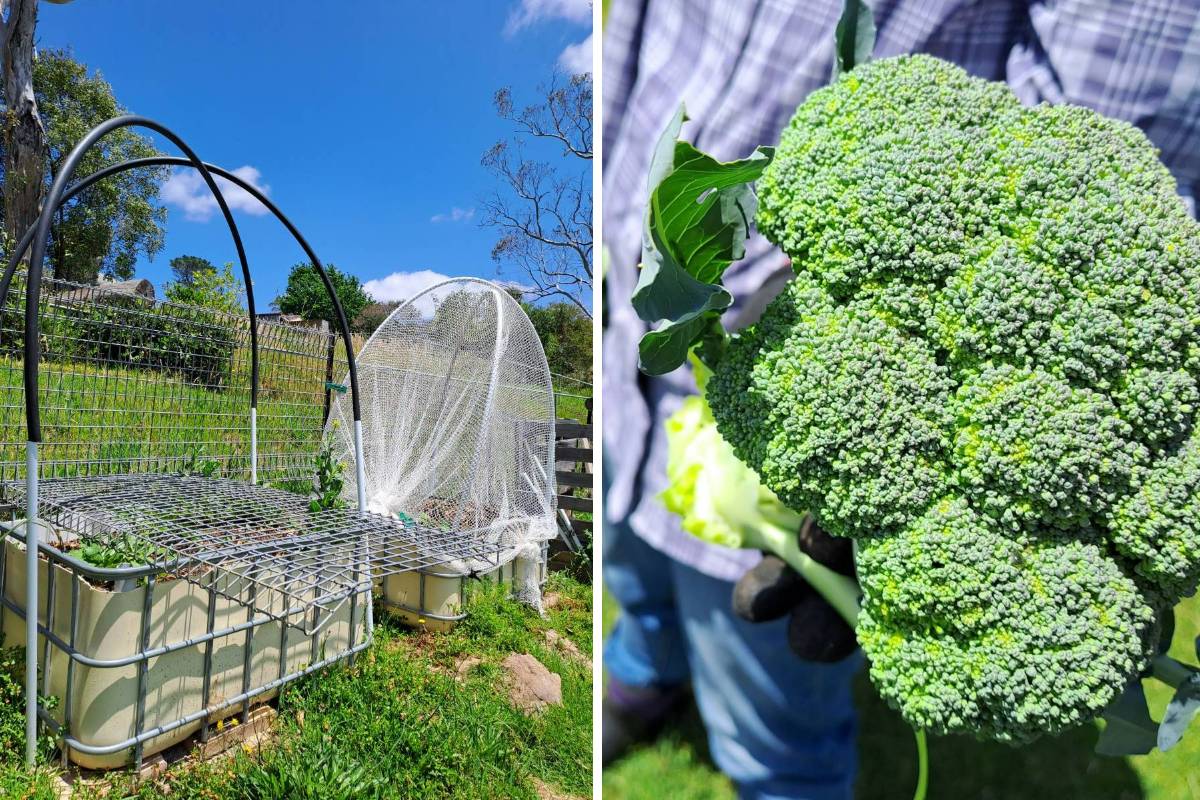
Left: Wicking beds are one way Mid Mountains Community Garden is facing the challenge of water management in a changing climate. Right: A beautiful head of broccoli picked from one of the patches.
In another effort to manage water, they installed a drip irrigation system connected to tank water. “When the weather gets hotter, we limit the amount of water via drip irrigation to get the plants used to less water,” said Ray.
Members have also worked hard to create a closed loop system that doesn’t rely on outside inputs. Janet explained that instituting a rotating green manure system on site has been worthwhile: “We are currently leaving one garden bed fallow each three months. Into this bed we plant a ‘green manure’ crop,” she said. “The intention is to rest the soil and to improve the soil health. I think it is working as our most recent crops seem to have grown quicker and to be flowering sooner.”
Ray added: “We use seeds with different functions [for the green manure]. Importantly, you need to dig it in before it flowers. When the plant flowers, all the goodness goes to the flower, so dig it in before then so that the goodness goes back into the soil. Since using this system, we haven’t needed to use any fertilisers, only green manure and we add in some worm juice.”
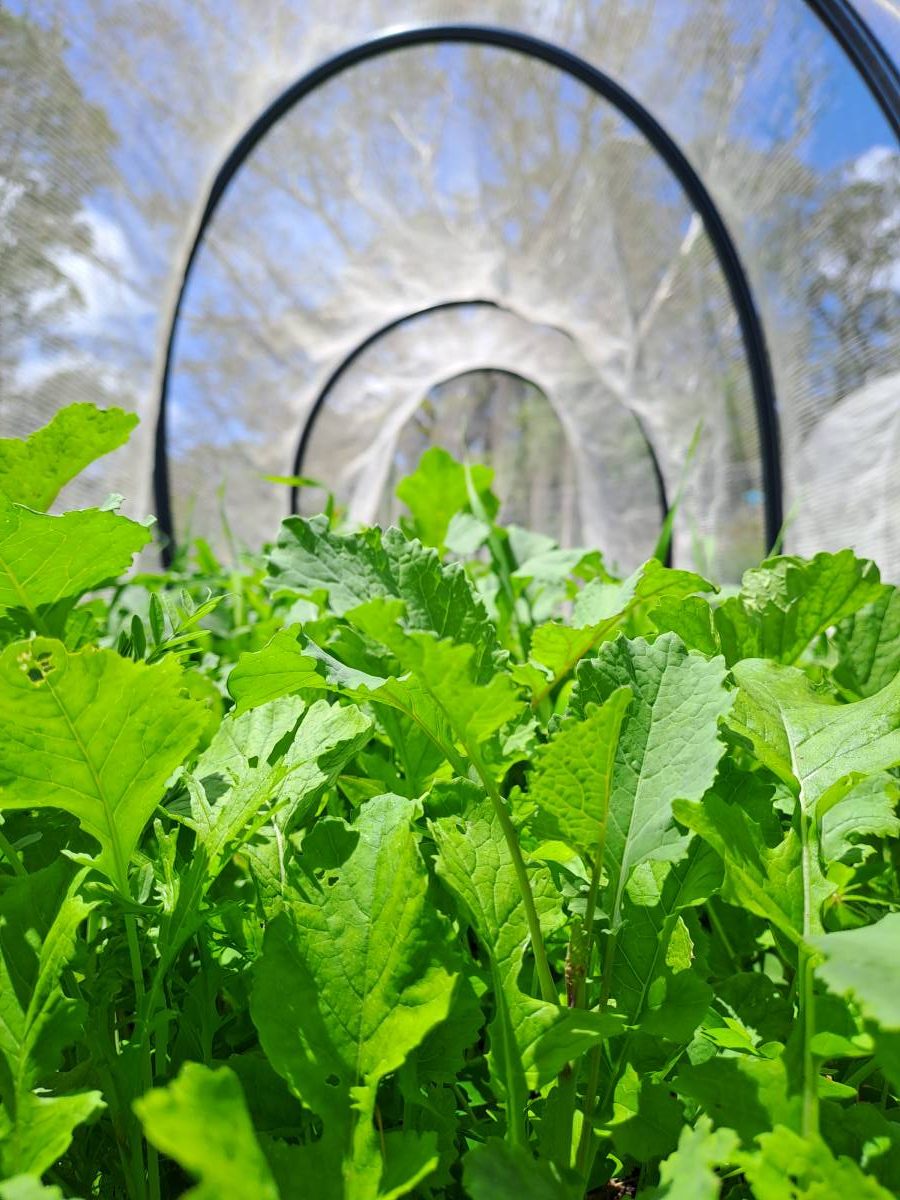
A lush ‘green manure’ that will soon be dug in to improve soil health.
In a world of ever-increasing personal busyness, as well as known and unknown environmental challenges ahead, community gardening just makes sense.
You can join Mid Mountains Community Garden simply by showing up on Saturday between 9am and 12pm. Get your hands into the soil, have a good chat, and leave with produce and knowledge, like Ray’s final advice to me before I left: “If you find a plant that works in a particular area, then get the seed, because it will continue to grow well there every time. It’s in their DNA to cope with the issues of that area.” A solid tip that can be applied to all veggie patch relationships.
Click to view a short 30-second video shot on a recent sunny Saturday
Take Action:
- Get involved at Mid Mountains Community Garden every Saturday between 9am-12pm at Kihilla Retreat & Conference Centre, 5-17 Queens Road Lawson NSW 2783 (Map & Directions)
- Learn more about community gardens, and find other nearby gardens at https://communitygarden.org.au/
- Get inspired on the 2024 Blue Mountains Edible Garden Trail, March 2-3. Learn more at https://www.katoombalocalnews.com/event/blue-mountains-edible-garden-trail/
Share this article:
This story has been produced as part of a Bioregional Collaboration for Planetary Health and is supported by the Disaster Risk Reduction Fund (DRRF). The DRRF is jointly funded by the Australian and New South Wales governments.
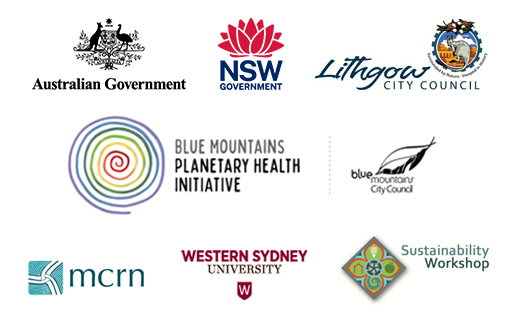
More from around the region
The fabulous Gang Gang Farmers Market in Lithgow will be back when the weather warms up. Meet some stallholders and whet your appetite for their Spring re-opening in Lithgow Area Local News (link in profile)
https://lithgowlocalnews.com/gang-gang-farmers-market/
#markets #lithgow #localproduce #planeteryhealth #buylocal
Imagine having enough absorbent green spaces, water tanks and underground water storage to capture the damaging stormwater that runs off hard surfaces in extreme wet weather events; imagine having enough stored water and the ability to clean all the water we use so that we are prepared for future drought and fire seasons. Join the discussion about how we can do this at a Free Water Symposium on Friday 26 July at the Planetary Health Centre. Bookings essential (link in profile): https://www.eventbrite.com.au/e/future-proofing-with-circular-water-tickets-943977701717
#circularwater #greywater #blackwater #stormwater #waterrecycling #togetherwecan #disasterriskreduction #beprepared #extremeweather #planetaryhealth #bushfire #flood #drought
Beyond the Yellow Bin: Surprising Things You Can Recycle – and How to Do it!
Here’s a guide to help Springwood and Greater Blue Mountains residents access the most effective recycling options available in the local area. Read more in Springwood Area Local News (link in profile): https://springwoodlocalnews.com/recycling-in-the-blue-mountains/
#recycling #circulareconomy #reuse #reduce #recycle #bluemountains #springwood #planetaryhealth #togetherwecan
Hamish Dunlop interviews prize-winning children’s book illustrator, mother, activist and proud Bundjalung woman, Charmaine Ledden-Lewis about the power of storytelling and how we can inspire our children to build a better world. Read more in Blackheath Area Local News (link in profile): https://blackheathnews.com/charmaine-ledden-lewis/
#changethestory #abetterworld #powerofstorytelling #bundjalung #illustrator #firstnations #planetaryhealth #blackheath #bluemountains
Broken chair? Blown amp? Busted washing machine? They don’t have to be thrown away! These Mid Mountains fixers and makers will revive them. Read more in our Mid Mountains Repair Guide: Choosing Longevity in an Age of Disposability. You can find it in Mid Mountains Local News (link in profile): https://www.midmtnslocalnews.com/mid-mountains-repair-guide/
#repair #repairculture #fixing #reuserecycle #longevity #togetherwecan #thebigfix #planetaryhealth #midmountains #repairguide
In this video, Dharug artist Leanne Tobin talks eloquently about the critical importance of water and why it`s the theme of her two paintings in the Water for Life exhibition at the Blue Mountains Planetary Health Centre. View the paintings and learn more about the many ways we can work together to manage water better at our free Water Symposium next Friday 26th July. Bookings essential (link in profile): https://bit.ly/3LiuJWi
The full video can be viewed on our YouTube channel (link in profile)
#waterforlife #leannetobin #firstnations #waterissacred #planetaryhealth #watersymposium
Electric vehicles continue to grow in popularity across Australia, but many people are still uncertain about their benefits, feasibility, and availability. To try and help local communities in the Lower Mountains have a better understanding of what EV’s can offer, @parentsforclimatebluemountains are hosting an EV Showcase in Blaxland on Saturday 27 July to help bust the EV myths and provide helpful, up-to-date and accessible information. 33 Hope Street Blaxland between 10 am and 12.30 Read more in Lower Mountains Local News (link in profile): https://lowermtnslocalnews.com/community-ev-showcase-blaxland/
#electriccars #blaxland #bluemountains #ev #planetaryhealth #towardszeroemissions
As part of our Water Demonstration Site at the Blue Mountains Planetary Health Centre we`ve installed a range of sprinklers to show people how to protect their homes from bushfire. Plumber Daniel Brown will be giving a tour at our upcoming event: Future Proofing with Circular Water on Friday 26 July. The event is free but bookings essential at https:bit.ly/4f78K1Z (link in profile) #bushfiresprinklers #beprepared #planetaryhealth
Global problems are creating renewed interest in traditional DIY skills like sewing. Here’s how a local grandmother is sharing her rag trade experience to make a difference and how you can get involved. Read more in Katoomba Area Local News (link in profile): https://www.katoombalocalnews.com/upcycling-fashion-workshops/
#skillshare #givingback #sharing #upcyclingfashion #sewing #patternmaking #repair #clothingadjustments #wastereduction #textilewaste #creativity #planetaryhealth
Calling all plumbers, builders, architects, engineers and any community members interested in learning ways we can manage water to reduce the impact of future droughts, floods and fires. On Friday 26 July we`ll be bringing together leaders in bushfire sprinkler system design, Hydraloop technology which can recycle 40% of your greywater, the program manager for drought from Sydney Water, and the designer of our 150,000l underground water storage system which will be capturing and cleaning stormwater for firefighting as a model for what we could build at the end of flame zone streets. Speak to a plumber about installing tanks and water systems and be in the running to trial one of two free Hydraloops we have on offer. This grant-funded event is free but bookings essential (link in profile):
https://bit.ly/4f78K1Z
This event is being supported by the Disaster Risk Reduction Fund which is funded by the Australian and New South Wales governments.
@hydraloop_systems @sydneywater @nswreconstructionauthority #greywaterrecycling #watertanks #firefighting #beprepared #drought #fire #flood #heatwave #bushfiresprinklers #planetaryhealth #disasterriskreduction
Our fortnightly Planetary Health Newsletter shares news about upcoming events, like our free Water Symposium on Friday 26 July, and stories from the Lower Mountains to Lithgow that are jam-packed with inspiration and a blueprint for the way forward.
Read it here and subscribe via any of our news sites (links in profile):
https://bit.ly/4cXQg2f
In this edition:
Katoomba Area Local News: Learning How To Upcycle Fashion with Sherlie McMillan
Mid Mountains Local News: Mid Mountains Repair Guide: Choosing Longevity in an Age of Disposability
Blackheath Area Local News: Charmaine Ledden-Lewis on Stories for a New World
Lower Mountains Local News: Busting The EV Myths: Community EV Showcase & Information Event Comes to Blaxland
Springwood Area Local News: Beyond the Yellow Bin: Surprising Things You Can Recycle – and How to Do it!
Lithgow Local News: The Gang Gang Farmers Market will Return in Spring!
#planetaryhealth #systemicchange #togetherwecan #solutions #constructivejournalism #watersymposium #hyperlocalnews
What an inspiring day at the Planetary Health Centre yesterday! We launched the Planetary Health Storytelling Network after a brilliant workshop with award-winning health writer and author Sophie Cousins on Our Community, Our Stories: Writing for Change. The Network will include all types of storytelling for planetary health: from songwriting to video, creative non fiction and visual arts. We`ll be having our first reading by Lorraine Shannon on the theme of GARDENS at 6.30pm on Thursday 8 August. All welcome to come along and share. SAVE THE DATE!
#planetaryhealth #changethestory #togetherwecan #storytelling #storytellingforchange #planetaryhealthstorytellingnetwork


